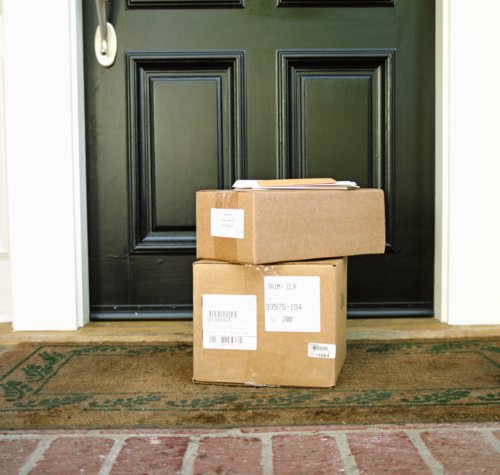Just Where Do My Online Orders Come From?
 Have you ever stopped to think where your last online order came from and how it got to your house? We might assume that the package on our doorstep has probably just made a lengthy and complex journey across the country (courtesy of the belly of a UPS freighter, a handful of trucks, a few miles of conveyor belts and some good old human muscle) from a large, nondescript distribution center located in the suburbs of a city we've barely heard of. You may be surprised to learn then, that today it is increasingly likely that the package at your door came no further than a few miles down the road from a locally based store of the retailer you ordered online from. Of course, as consumers, we don’t really care where our purchases came from or how they found their way to our doorstep – as long the right merchandise arrives damage-free and on time.
Have you ever stopped to think where your last online order came from and how it got to your house? We might assume that the package on our doorstep has probably just made a lengthy and complex journey across the country (courtesy of the belly of a UPS freighter, a handful of trucks, a few miles of conveyor belts and some good old human muscle) from a large, nondescript distribution center located in the suburbs of a city we've barely heard of. You may be surprised to learn then, that today it is increasingly likely that the package at your door came no further than a few miles down the road from a locally based store of the retailer you ordered online from. Of course, as consumers, we don’t really care where our purchases came from or how they found their way to our doorstep – as long the right merchandise arrives damage-free and on time.
So just why are more and more online retailers including American Apparel, Ann Inc, Best Buy, Dick's Sporting Goods, Finish Line, Gap, Guess, J.Crew, Lowe's, Macy's, Sears, Toys R Us, Urban Outfitters, and Wal-Mart now shipping online orders from their brick and mortar stores? Unfortunately it’s not (intentionally) part of an initiative to save the planet and cut down on carbon emissions – the real answer is Amazon. To help achieve the latter part of its mission statement ("Be cheap. Be fast"), Amazon will operate from 39 fulfillment centers across the US by the end of 2014. This means that the online superpower is increasingly able to get orders into the hands of the customer quickly. In fact, Prime members–of which Amazon was recruiting over 1m a week during the 2013 holiday season–have come accustomed to free 2-day shipping on almost all orders. Prime is now the benchmark by which all other retailers must now compete. The problem is that few retailers have neither the customer base nor the deep pockets to develop a competing loyalty scheme that can match the Prime promise… until now, that is. Omni-channel retailers are waking up to the fact that all along they’ve had a secret ‘Amazon slaying’ weapon in their pockets: their stores. By leveraging existing store inventory to fulfill online orders, retailers can potentially beat (or at least match) Amazon at its own game. By shipping locally, retailers can significantly reduce their carrier costs, thereby lowering the threshold at which they can economically offer free shipping. Furthermore, these same retailers have the opportunity to get products to the customer quickly, or even very quickly (think same day).
Although many retailers have started shipping online orders from stores to match Amazon’s Prime program, there is also significant opportunity to grow online sales and margins by sharing inventory across the enterprise with the online channel. In my latest report “Why Every Online Retailer Should Ship-From-Store” I explore the end-to-end business case for enabling stores to become mini fulfillment centers. Our research revealed that when online stores are able to sell both store and online inventory, a profound uplift in online revenue in the region of 10% to 30% can be achieved.
So next time you're opening the package that arrived on your doorstep, take a closer look at the UPS label – You may be surprised to see that the ship-from-address is just down the road.